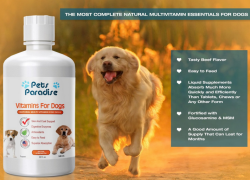
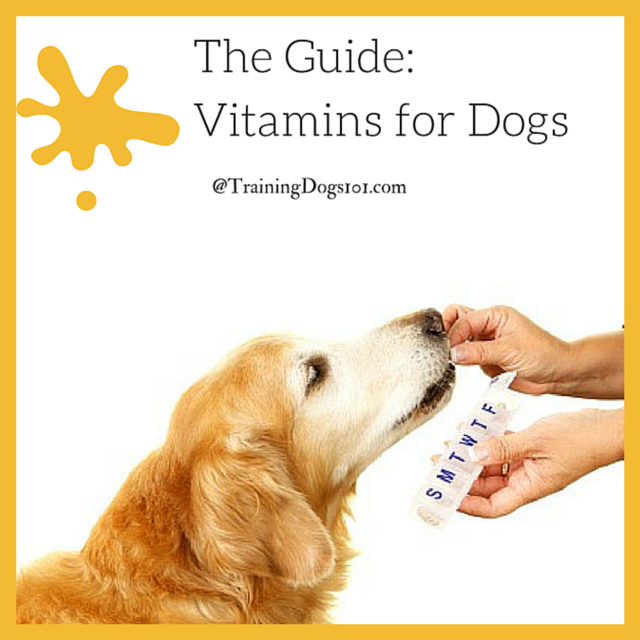 Your Guide to Using Vitamins for Dogs.
Your Guide to Using Vitamins for Dogs.
Dogs need vitamins and minerals to be healthy, and they get a lot of them from the food they eat. However, sometimes health issues can arise that necessitate the use ofsupplements. But more frequently these days, people are starting to use vitamins for dogs on regular bases as well. As a pet owner, you have to make sure that you provide the proper nutritional elements that protect your dog against diseases and illnesses and help him function in the healthiest way possible. When it comes to providing vitamins, there are various supplements that you can find that are specifically created and formulated for canines. But before you decide to give them to your pet, there are important things that you have to take into consideration.
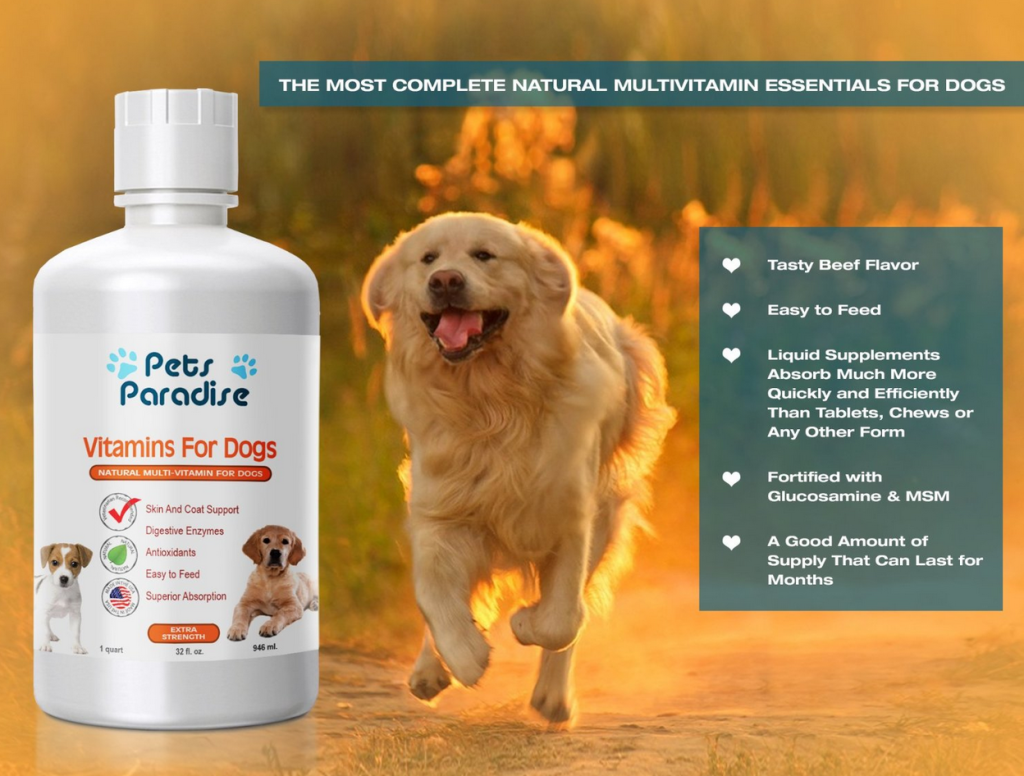
♥ The MOST Complete Natural Multivitamin Essentials for Dogs. Fast Absorption & Easy to Feed ♥
Is It Safe to Use Dog Vitamins?

via pawnation.com
There is nothing wrong in giving your dog vitamins as long as you’ve fully researched their purposes and have discussed their use with your vet. Don’t just decide to start giving vitamins without a consultation; there is danger whenever you provide vitamins for your pet. If your dog already has a good and balanced diet and he ends up taking excess vitamins and minerals, this can cause more harm to him depending on the supplement that you use. According to veterinarians and the FDA, excess vitamins and minerals can pose serious health threats to your dog by causing nutritional imbalances. For example, giving too much calcium to your pet can result in skeletal issues. This can be a big problem, especially for giant-breed dogs. If your dog has an excess vitamin A intake, it can result injoint pain, dehydration, and blood vessel problems. Too much vitamin D can affect your dog’s appetite.
It’s important that you don’t risk your pet’s health simply because you feel like he needs vitamins. Dogs aren’t meant to take some daily vitamins the same way people do. While the manufacturing processes and vitamins themselves are almost always completely safe, your usage patterns may not be, and this can create a recipe for disaster that puts your dog’s health in danger and will take additional time and money to correct.
Are Dog Supplements Effective?
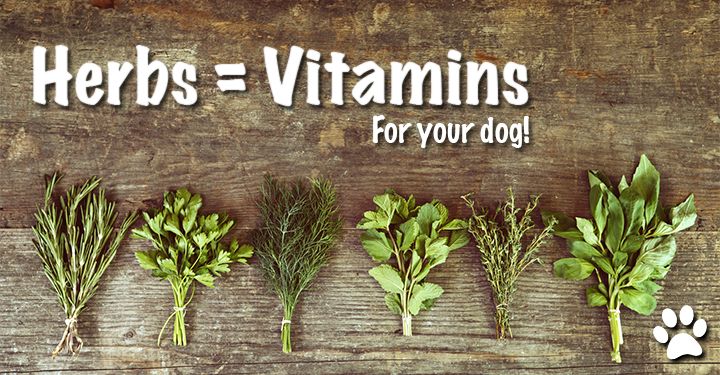
via dogsnaturallymagazine.com
There are various dog supplements that are now readily available in stores. But when it comes to effectiveness, not all of them can give you the benefits that the product label claims or promises. The quality and effectiveness varies from one supplement to another. As such, it is essential that you carefully choose which vitamin supplement to give to your pet with your vet’s advice under heavy consideration. It’s rare to find brands that conduct clinical trials, but this is also the case with human vitamins. There isn’t a regulatory agency that oversees the production of pet vitamins, so there’s no surefire guarantee. It’s best to consult with your vet to determine the best brands and types for your pet’s health needs, such as correcting a nutritional deficiency orimproving joint problems.
Which Specific Vitamins Does Your Dog Need?

via gopetplan.com
Your dog needs different vitamins and minerals to grow and to be healthy. However, you should also be careful, because giving too many vitamins can also be bad for his health. The key here is to have just the right balance of nutrients. Dogs need to have vitamins from two groups: water-soluble vitamins and fat-soluble vitamins. For the water-soluble vitamins, your dog needs vitamin C and a vitamin B complex. For the fat-soluble vitamins, your dog needs vitamins A, E, D, and K.
Water Soluble-Vitamins
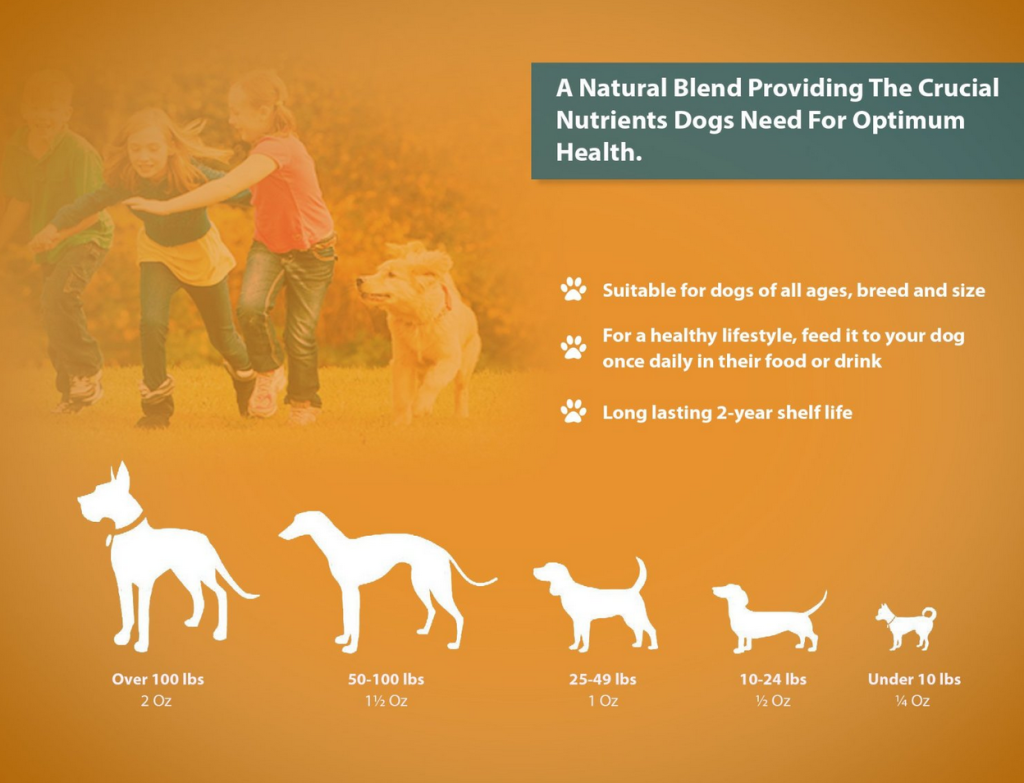
♥ The MOST Complete Natural Multivitamin Essentials for Dogs. Fast Absorption & Easy to Feed ♥
Your dog needs to have water-soluble vitamins. This vitamin group is responsible for ensuring that your dog has healthy and strong bones and connective tissues. Most dog foods already contain vitamin B. But with vitamin C, the other most common type, many products are woefully lacking. You can buy supplements that contain vitamin C, but before you do, consult your vet first. Complications with this vitamin are rare, and most dogs’ bodies produce enough of it naturally, but if your vet recommends supplementation then it’s important to know how much to give. Dogs with conditions like glaucoma typically need supplementation of water-soluble vitamins. This type is excreted through urine, not stored in your dog’s body, so you’ll need to use them on a regular basis.
Fat Soluble Vitamins
Fat-soluble types include vitamins A, E, D and K and can be sourced from animal fats. These are stored in the intestines and fat cells for later use, unlike the water-soluble variety. Vitamin K is sometimes used to prevent blood clots, while vitamin E is essential for red blood cell production. Vitamin D is essential for calcium absorption, while vitamin A is crucial for good eyesight.
Regular Vet Visits
To have proper nutrition and healthcare for your pet, you should take your dog to your vet regularly. Only certified vets can provide you with prescriptions and recommendations for vitamins, and they know enough about your dog’s overall health to understand what will help or hurt him. Don’t just decide to start feeding them, because doing so can put your dog’s health at risk. For instance, if your dog has arthritis, you cannot just assume that he needs calcium or glucosamine.
If your dog is taking medicine, you should be careful before giving any supplements, even if they are herbal supplements. Some of these supplements may interact with the medicine that your dog is taking. You should ask your vet first before giving your dog any vitamin supplement.

via bestbullysticks.com
A dog that has a balanced diet generally has an overall healthy condition, so there should be no problems if he’s younger. If that’s the case then there is no need for supplementation. Talk to your vet regarding your dog’s diet, as this is the best way to solve a vitamin deficiency. You and the vet can work to reassess your dog’s current food to determine a meal plan that improves your pet’s overall health.






